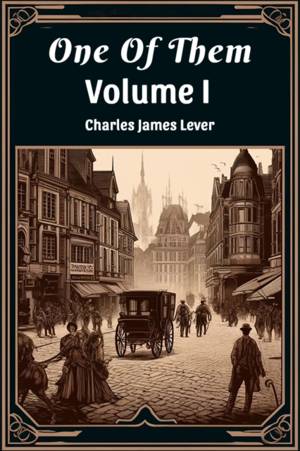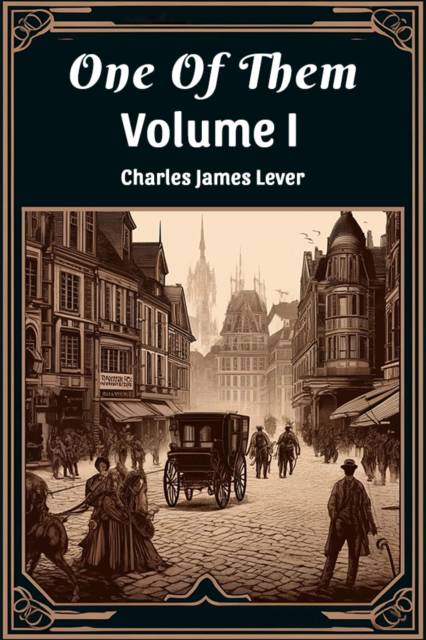
- Afhalen na 1 uur in een winkel met voorraad
- Gratis thuislevering in België vanaf € 30
- Ruim aanbod met 7 miljoen producten
- Afhalen na 1 uur in een winkel met voorraad
- Gratis thuislevering in België vanaf € 30
- Ruim aanbod met 7 miljoen producten
Zoeken
Omschrijving
One of Them" is a novel by the Irish author Charles James Lever, known for his lively and humorous depiction of 19th-century society. Originally published in 1861, the book offers a satirical and engaging look at the social and political issues of the time through the eyes of its protagonist. Gorman O'Shea, an Irishman with a mix of idealism and pragmatism, ventures into the higher echelons of British society. Lever uses O'Shea's experiences to explore and satirize the intricacies of class, politics, and social norms. The novel weaves together various subplots involving romantic entanglements, political machinations, and the personal growth of its characters. Gorman's journey is marked by his attempts to reconcile his Irish identity with the expectations and prejudices of the British establishment. Lever employs his characteristic wit and humor to critique social pretensions, bureaucratic inefficiencies, and the often absurd nature of political life. Social Satire: The novel is rich in satirical commentary on the social and political dynamics of 19th-century Britain and Ireland. Identity and Belonging: Gorman's struggle to find his place within the rigid structures of British society highlights issues of national and personal identity. Romantic and Personal Development: The romantic relationships and personal growth of the characters underscore the human aspects of the larger social commentary. Class and Social Mobility: The novel examines the barriers to social mobility and the pretensions of the upper classes.
Specificaties
Betrokkenen
- Auteur(s):
- Uitgeverij:
Inhoud
- Aantal bladzijden:
- 426
- Taal:
- Engels
Eigenschappen
- Productcode (EAN):
- 9789364283892
- Verschijningsdatum:
- 1/08/2024
- Uitvoering:
- Paperback
- Formaat:
- Trade paperback (VS)
- Afmetingen:
- 140 mm x 216 mm
- Gewicht:
- 535 g

Alleen bij Standaard Boekhandel
+ 72 punten op je klantenkaart van Standaard Boekhandel
Beoordelingen
We publiceren alleen reviews die voldoen aan de voorwaarden voor reviews. Bekijk onze voorwaarden voor reviews.








